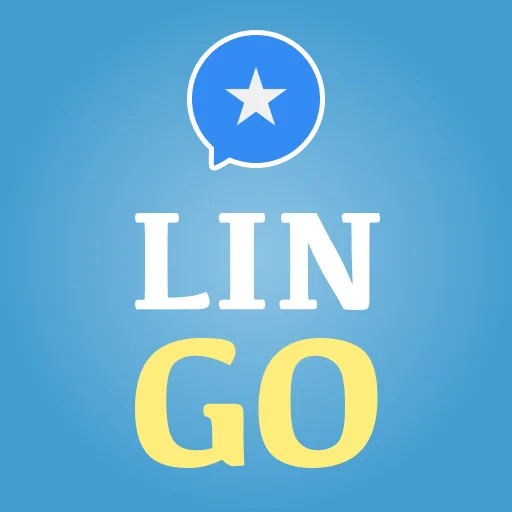Studying new words and phrases while learning the somali language can be a challenging task that requires effort and perseverance. To make the learning process more effective and enjoyable, one of the most efficient methods is the use of educational flashcards. In this article, we will explore why flashcards are an effective way to learn and memorize words and how to use them properly in the learning process.
Subtopic 1: Why educational flashcards are so effective for learning words
1.1. Active RecallEducational flashcards serve not only as a tool for memorizing new words but also as a means of active student engagement in the learning process. When you use a flashcard to test your knowledge, you involve various aspects of your thinking, such as attention, memory, and associative connections. It's crucial not only to read the word and its translation but also to actively interact with the material, making efforts to recall it.
Active recall plays a key role in forming neural connections in the brain, which contributes to better assimilation of information. When you encounter a flashcard, your brain activates to search for the required information in your memory and check the accuracy of your response. This process strengthens synaptic connections and helps you memorize the word or phrase more effectively.
1.2. Spaced RepetitionSpaced repetition is another essential component of the effectiveness of educational flashcards. Throughout the learning process, our memory follows the pattern of forgetting: right after learning new information, we remember it, but over time, if we don't reproduce that information, we start to forget it. To avoid this, it's necessary to regularly review the learned words and phrases.
Educational flashcards allow you to conveniently organize a system of repetitions. Each flashcard represents a separate piece of information, and you can schedule their repetitions accordingly. For example, in the initial stage, you can review flashcards every day, then every 3 days, followed by a week, and so on. This approach distributes the memory load and solidifies the learned words in your long-term memory.
1.3. Context and AssociationsEducational flashcards in language learning apps like LinGo often provide rich context and associations for each word or phrase. Context helps understand how to use a new word in different situations and phrases, making the learning process more comprehensive and practical.
For instance, a flashcard may contain a sentence that uses the target word to demonstrate its context and meaning. This helps students grasp how to use the word in the correct form and grammatical context. Contextual learning significantly enhances language skills, enabling students to communicate more naturally and confidently.
Moreover, educational flashcards can include associations or visual images that help establish a connection between the new word and familiar objects, actions, or concepts. For example, for the word "apple," an image of an apple may be added. This visual representation aids in better memorization, as the brain finds it easier to retain and associate information with images.
1.4. Suitable for Different Learning StylesAnother advantage of using educational flashcards is their suitability for different learning styles. Some students prefer visual images and associations to memorize new words, while others find active recall and repetition more effective. Educational flashcards allow each student to choose the approach that works best for them.
1.5. Convenience and AccessibilityAnother significant benefit of educational flashcards is their convenience and accessibility. Modern apps like LinGo offer the flexibility to use flashcards on various devices, such as smartphones, tablets, and computers. This allows students to learn new words at their own convenience and location, making the learning process much more flexible and efficient.
Subtopic 2: How to Use Educational Flashcards for Learning Words
2.1. Creating FlashcardsThe first step in using educational flashcards is to create them. You can create flashcards manually on paper or use specialized apps or online platforms for flashcard creation. Each flashcard should contain a word or phrase in one language with its translation or definition in another language. In the LinGo app, you don't need to create flashcards as it already offers a wide range of pre-made flashcards divided into different categories such as professions, animals, hobbies, food, transportation, and more.
2.2. Choosing CategoriesFor more organized learning, you can categorize flashcards by themes or difficulty levels. This helps you structure your learning process and focus on specific aspects of the language at a time.
2.3. Regular RepetitionAs mentioned earlier, regular repetition is a key factor in the effectiveness of flashcard usage. Set a schedule for reviewing flashcards, such as daily or at specific intervals (e.g., after 1 day, 3 days, 1 week, etc.). This spaced repetition system helps reinforce words in your long-term memory.
2.4. Checking and Self-MonitoringWhen using flashcards, actively check yourself and monitor your progress. This allows you to assess your current performance and focus your efforts on more challenging words or phrases.
2.5. Use MnemonicsMnemonics are memory aids that help improve information retention. When learning new words, you can create associations, anecdotes, or link the word to something familiar or a personal experience. This aids better memorization and faster recall.
2.6. Gamification ApproachesTo make the learning process more engaging, incorporate gamification elements with educational flashcards. Many apps, including the popular LinGo app, offer gamified lessons based on flashcards. This makes learning more interesting and dynamic, increasing motivation and successful acquisition of new words.
Subtopic 3: Word Learning Method with LinGo App Flashcards
LinGo app is a leader in self-study of over 70 foreign languages, including somali. One of the key methods that make LinGo popular among students is the use of educational flashcards on various topics.
3.1. Wide Variety of Flashcards on Different TopicsLinGo provides an extensive selection of flashcards on various topics, from everyday life and travel to business vocabulary and specialized terms. This allows students to choose the topics that interest them the most and focus on learning words and phrases that will be most useful in their daily communication.
3.2. Interactive ExercisesIn LinGo, flashcards are combined with interactive exercises and tests, making the learning process more engaging and effective. Students can complete various types of exercises, such as choosing the correct translation, spelling new words, or even listening to pronunciations.
3.3. Gamification of LearningOne of the advantages of LinGo is its use of gamification in flashcard-based learning. Users earn points and achievements for each correct answer, encouraging them to participate more actively in the lessons. This approach makes the learning process more enjoyable and stimulating.
3.4. Personalized ApproachLinGo offers a personalized approach to learning, based on the student's level of knowledge and goals. This allows students to choose flashcards and exercises that align with their needs and learn at their own pace.
3.5. Spaced Repetition System
Just like traditional educational flashcards, LinGo also utilizes a spaced repetition system to reinforce the memorization of words and phrases. Students regularly review the studied flashcards according to a specific schedule, which helps solidify their knowledge on a long-term basis.
Conclusion
Educational flashcards are a powerful tool for learning and memorizing new words and phrases when studying languages. Their effectiveness is based on active recall, the principle of spaced repetition, providing context and associations, as well as convenience and accessibility. With the help of flashcards, students can learn more words in a short amount of time and confidently use them in speech. Incorporate educational flashcards into your somali language learning journey and reach new heights in mastering foreign languages!











